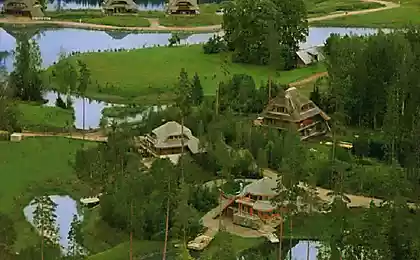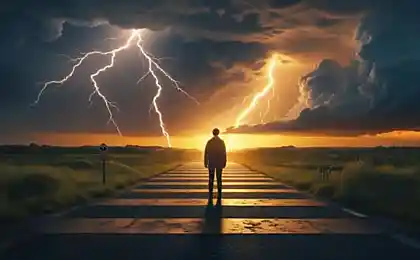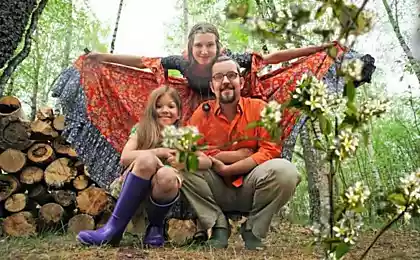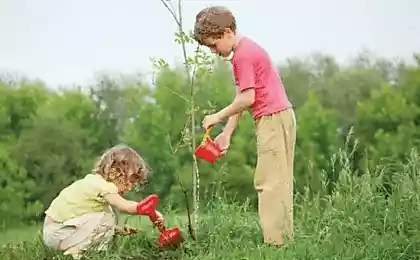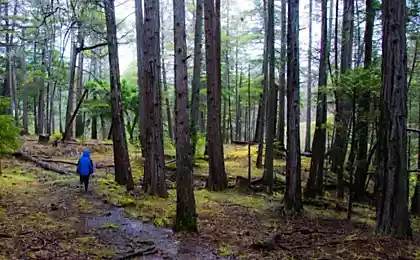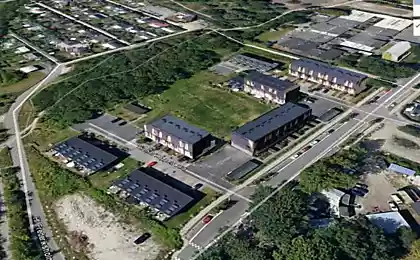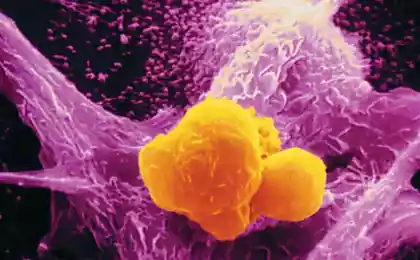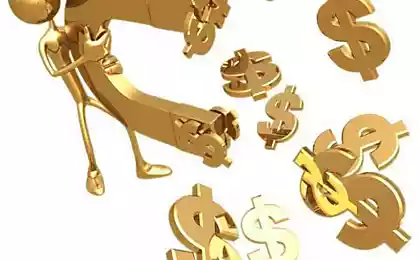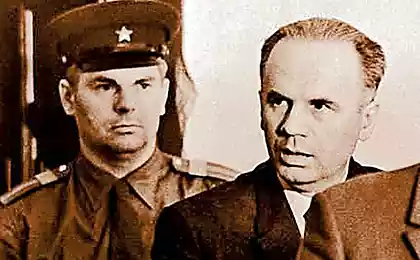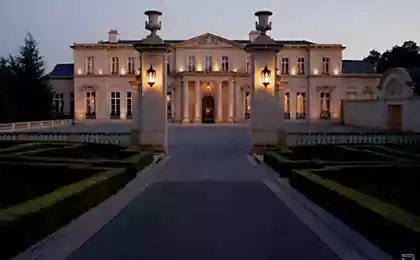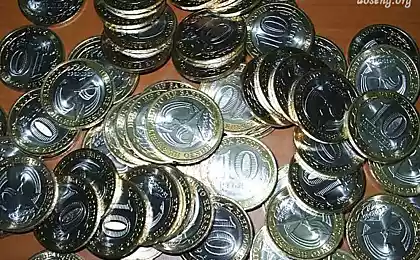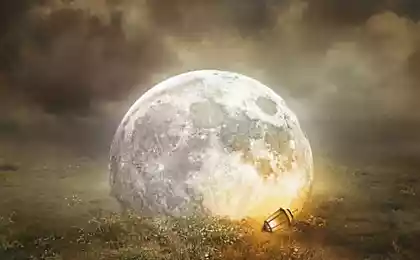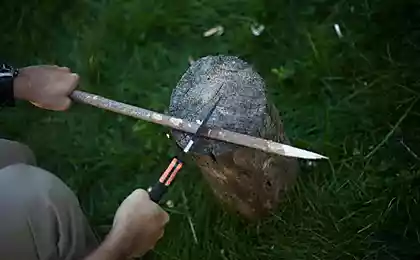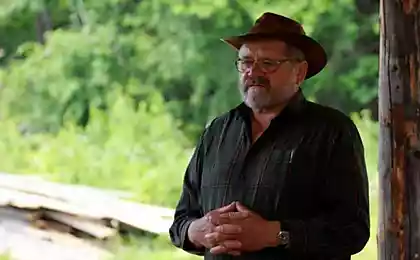509
Simple steps to survival in a crisis
Seventy five million six hundred seventy two thousand five hundred ninety four
The fall of the LEU, rising prices of industrial and food products, the threat of a rise in electricity tariffs, unaffordable utility bills, difficulties with employment and the lack of clear prospects for the development of the country – all this is forcing an increasing number of Moldovan citizens to think about what to do in order to live through this difficult period. For many years, support was given to the work of one or several family members abroad. But given the current foreign policy situation and that decision seems increasingly unreliable. An unexpected way out of a situation offer enthusiasts ecovillages. But the question is, are the leaders of the Republic to support such innovative solutions?
The idea of eco-villages is not new. In the West the first settlement in the modern sense of this word appeared in 60th years of the XX century, simultaneously with the hippie movement. A large number of eco-villages founded in the US and in Europe. The newly established European Union eco-villages (GEN — Europe). In the late-nineteenth-century Indian chief said, "When will the last fish and cut down the last tree, people will understand that money is inedible." The people of Western Europe have already realized this simple truth and began to rebuild their forests. Along with farmers, they receive considerable support from the state. Unfortunately, in Moldova as the concept of sustainability of life is not included in the list of government priorities. But, despite this, to date, the country has already organized several eco-villages, and the interest in them continues to grow.
One of the main ideas ekoposelentsev – the idea of careful natural resource management. Ekoposeleniy actively use alternative energy (solar panels, wind turbines) and green agriculture technologies. But the preservation and enhancement of natural resources is not everything.
The main idea that unites all Moldovan ecovillage is the idea of "humanity". In different communities it manifests in different ways. It as following a spiritual path, somewhere- as the maintenance of a comfortable psychological climate in the community, some as a departure from the ideology of consumerism, etc in any of the Moldovan ecovillages every member of the community can count on friendly attitude and support of the community in the development of the best human qualities.
The first in Moldova was Happy ecovillage, which is located in Orhei district. This settlement, consisting of kin's domains — the supporters of the ideas described by V. N. Maigret. He is about ten years. Another actively developing in recent time, eco-villages – a community Rychkova in the village of Criuleni district. Formed a settlement in the Baltata village, Criuleni district. Near the village, Hincesti district Nemani farmer Harry Jacko bought several acres of land, where he hopes to gather supporters of a healthy lifestyle, vegetarianism and raw food, those who are not afraid of life and work on earth. There are such communities and in Transnistria.
Sixty million three hundred seventy five thousand two hundred ninety two
They are all created on pure enthusiasm of people who have decided to free themselves from material bondage. "If you stop striving to excess and to begin to live more consciously, you will find that there are plenty of opportunities with their hands to build a house, grow a garden, make things, — says one of the settlers Happy Vladislav Sandulyak. — Life in nature is health, it is an opportunity to communicate more with my family. Ecovillage also provides the ability to create the desired environment for themselves and their children."
And yet, modern civilization was too firmly tied people into a single community, and fully vicinitys of society in our time is simply impossible. And to live in accordance with their ideals of any community must recognize and support (albeit minimal) from the state. The main natural wealth of Moldova is a climate and soil, and therefore no modernization of economy of the Republic is impossible without a serious of agrarian reforms. And in the current environment of shortage of funds and human resources the settlement could be one of the areas of recovery of agriculture in Moldova.
— Life in the Family estate is fundamentally different from farming and the peasantry, explains the idea Vladislav. — Farmers and peasants are specialized in producing agricultural products. Patrimony means, above all, the creation of the plot of one hectare for each family a healthy, environmentally friendly living environment, including a hedge along the perimeter of the garden, pond, vegetable garden, etc. of the Commonwealth these estates combined in eco-villages inhabited by different social groups of citizens. Such settlements involve, in particular, and the production of organic food, but above all, the challenge is how to provide food for the owners themselves, and then, in the case of excess production to provide surplus market needs in the surrounding cities.
Ekoposeleniy is people who have taken fully on the issues of ensuring themselves and their families. They do not intend to sit on the neck of the state. But the solution to infrastructure issues or, for example, the construction of roads they are simply not under force. State aid is crucial. The promotion of government agencies need to carefully align themselves with supporters of the idea of kin's domains. Otherwise, the assistance may turn into a disservice.
For example, recently in Russia, Plenipotentiary representative of the President of the Russian Federation Yuri Trutnev has taken the initiative to allocate free of charge one hectare of land in the vast expanses of the Far East every resident of the region and citizens who wish to move. The initiative was endorsed and publicly supported Vladimir Putin. Ekoposeleniy from Moldova hastened to congratulate their Russian associates: that's so great — Russia moves to a new level in the development of its vast expanses. The far East is more than 36% of the territory of Russia, and approximately 614 million acres of public land. Even the numbers say about the magnitude of reforms. And innovation there is support for the idea of kin's domains. Representatives of the Ministry of agriculture of the Russian Federation specially stressed that "the area of land allocated — 1 ha — chosen and associated with another legislative initiative aimed at the creation of kin's domains".
But the only ekoposeleniy from Russia this initiative was perceived as not such a happy place. Moreover, some even see it as a threat to discredit the very idea of kin's domains. "Free allocation of land is, of course, a gesture, but without the help of officials in the organization of the infrastructure of these villages, supply roads, etc. it is a good initiative can literally die on the vine. Especially considering the vast distances and the harsh climate in the far East. Ordinary urban residents without basic skills in social organization and social life, love to go to similar projects. But how much is enough for their enthusiasm when they will be alone with his raw acres and a dark abysmal problems with the supply of water, supply of building materials, etc., and their disappointment will hit in the first place the very idea of kin's domains, and not by bungling officials", — said Vladislav. The idea, he says, the family estate (settlements) belongs to humanity, and we, Moldavians, cannot be indifferent to what the idea can develop or, conversely, to discredit.
But there are positive examples of government support of the population during the difficult times. It is worth remembering the country movement, which peaked in the 80-ies, when the country began to see problems with the food. Free allocation of land plots and preferential loans for the construction produced an amazing effect in terms of shortages the country was the only means by which people can afford good nutrition. And still, despite the huge changes in life, suburban cooperatives thrive.
Eighty nine million seven hundred ninety thousand three hundred eight
One cannot continue to ignore the fact that in recent years around almost every large city of Russia, Belarus, Ukraine and other CIS countries at the personal initiative of citizens develop tens of thousands of settlements consisting of kin's domains. In Moldova today, this idea finds a growing number of supporters. And in terms of crisis settlement could be the same "safe haven" where desperate to wait for help from the state citizens of the Republic would be able not just to ride out the crisis, but to get a full-fledged economy. After all, people are drawn to it. Not only are emerging everywhere patrimonial estates, but also is a scientific search in this direction. So, for example, the Academy of public administration under the President of the Republic of Moldova on this subject, protected degree work Dotsenko D. A., entitled "the Role of public administration in the formation and implementation of national policy."
But the authorities must realize that the beginning of life on earth represents a huge effort. The construction of the house and other outbuildings, a well, the improvement and grooming of the site, planting of trees, shrubs, not to mention the construction of roads, energy infrastructure, schools, clinics, etc. — all this is very time consuming. Such persons, according to the logic of common sense, should be exempt from any taxes on land and manufactured it products, to provide concessional lending and other forms of social support. Then the enthusiasm and high aspirations of people really would benefit, both by the idea of eco-villages and the country as a whole.
Author: Valery Katruk
Source: www.ecology.md/section.php?section=ecoset&id=13738#.VNNAG2Tkd98
The fall of the LEU, rising prices of industrial and food products, the threat of a rise in electricity tariffs, unaffordable utility bills, difficulties with employment and the lack of clear prospects for the development of the country – all this is forcing an increasing number of Moldovan citizens to think about what to do in order to live through this difficult period. For many years, support was given to the work of one or several family members abroad. But given the current foreign policy situation and that decision seems increasingly unreliable. An unexpected way out of a situation offer enthusiasts ecovillages. But the question is, are the leaders of the Republic to support such innovative solutions?
The idea of eco-villages is not new. In the West the first settlement in the modern sense of this word appeared in 60th years of the XX century, simultaneously with the hippie movement. A large number of eco-villages founded in the US and in Europe. The newly established European Union eco-villages (GEN — Europe). In the late-nineteenth-century Indian chief said, "When will the last fish and cut down the last tree, people will understand that money is inedible." The people of Western Europe have already realized this simple truth and began to rebuild their forests. Along with farmers, they receive considerable support from the state. Unfortunately, in Moldova as the concept of sustainability of life is not included in the list of government priorities. But, despite this, to date, the country has already organized several eco-villages, and the interest in them continues to grow.
One of the main ideas ekoposelentsev – the idea of careful natural resource management. Ekoposeleniy actively use alternative energy (solar panels, wind turbines) and green agriculture technologies. But the preservation and enhancement of natural resources is not everything.
The main idea that unites all Moldovan ecovillage is the idea of "humanity". In different communities it manifests in different ways. It as following a spiritual path, somewhere- as the maintenance of a comfortable psychological climate in the community, some as a departure from the ideology of consumerism, etc in any of the Moldovan ecovillages every member of the community can count on friendly attitude and support of the community in the development of the best human qualities.
The first in Moldova was Happy ecovillage, which is located in Orhei district. This settlement, consisting of kin's domains — the supporters of the ideas described by V. N. Maigret. He is about ten years. Another actively developing in recent time, eco-villages – a community Rychkova in the village of Criuleni district. Formed a settlement in the Baltata village, Criuleni district. Near the village, Hincesti district Nemani farmer Harry Jacko bought several acres of land, where he hopes to gather supporters of a healthy lifestyle, vegetarianism and raw food, those who are not afraid of life and work on earth. There are such communities and in Transnistria.
Sixty million three hundred seventy five thousand two hundred ninety two
They are all created on pure enthusiasm of people who have decided to free themselves from material bondage. "If you stop striving to excess and to begin to live more consciously, you will find that there are plenty of opportunities with their hands to build a house, grow a garden, make things, — says one of the settlers Happy Vladislav Sandulyak. — Life in nature is health, it is an opportunity to communicate more with my family. Ecovillage also provides the ability to create the desired environment for themselves and their children."
And yet, modern civilization was too firmly tied people into a single community, and fully vicinitys of society in our time is simply impossible. And to live in accordance with their ideals of any community must recognize and support (albeit minimal) from the state. The main natural wealth of Moldova is a climate and soil, and therefore no modernization of economy of the Republic is impossible without a serious of agrarian reforms. And in the current environment of shortage of funds and human resources the settlement could be one of the areas of recovery of agriculture in Moldova.
— Life in the Family estate is fundamentally different from farming and the peasantry, explains the idea Vladislav. — Farmers and peasants are specialized in producing agricultural products. Patrimony means, above all, the creation of the plot of one hectare for each family a healthy, environmentally friendly living environment, including a hedge along the perimeter of the garden, pond, vegetable garden, etc. of the Commonwealth these estates combined in eco-villages inhabited by different social groups of citizens. Such settlements involve, in particular, and the production of organic food, but above all, the challenge is how to provide food for the owners themselves, and then, in the case of excess production to provide surplus market needs in the surrounding cities.
Ekoposeleniy is people who have taken fully on the issues of ensuring themselves and their families. They do not intend to sit on the neck of the state. But the solution to infrastructure issues or, for example, the construction of roads they are simply not under force. State aid is crucial. The promotion of government agencies need to carefully align themselves with supporters of the idea of kin's domains. Otherwise, the assistance may turn into a disservice.
For example, recently in Russia, Plenipotentiary representative of the President of the Russian Federation Yuri Trutnev has taken the initiative to allocate free of charge one hectare of land in the vast expanses of the Far East every resident of the region and citizens who wish to move. The initiative was endorsed and publicly supported Vladimir Putin. Ekoposeleniy from Moldova hastened to congratulate their Russian associates: that's so great — Russia moves to a new level in the development of its vast expanses. The far East is more than 36% of the territory of Russia, and approximately 614 million acres of public land. Even the numbers say about the magnitude of reforms. And innovation there is support for the idea of kin's domains. Representatives of the Ministry of agriculture of the Russian Federation specially stressed that "the area of land allocated — 1 ha — chosen and associated with another legislative initiative aimed at the creation of kin's domains".
But the only ekoposeleniy from Russia this initiative was perceived as not such a happy place. Moreover, some even see it as a threat to discredit the very idea of kin's domains. "Free allocation of land is, of course, a gesture, but without the help of officials in the organization of the infrastructure of these villages, supply roads, etc. it is a good initiative can literally die on the vine. Especially considering the vast distances and the harsh climate in the far East. Ordinary urban residents without basic skills in social organization and social life, love to go to similar projects. But how much is enough for their enthusiasm when they will be alone with his raw acres and a dark abysmal problems with the supply of water, supply of building materials, etc., and their disappointment will hit in the first place the very idea of kin's domains, and not by bungling officials", — said Vladislav. The idea, he says, the family estate (settlements) belongs to humanity, and we, Moldavians, cannot be indifferent to what the idea can develop or, conversely, to discredit.
But there are positive examples of government support of the population during the difficult times. It is worth remembering the country movement, which peaked in the 80-ies, when the country began to see problems with the food. Free allocation of land plots and preferential loans for the construction produced an amazing effect in terms of shortages the country was the only means by which people can afford good nutrition. And still, despite the huge changes in life, suburban cooperatives thrive.
Eighty nine million seven hundred ninety thousand three hundred eight
One cannot continue to ignore the fact that in recent years around almost every large city of Russia, Belarus, Ukraine and other CIS countries at the personal initiative of citizens develop tens of thousands of settlements consisting of kin's domains. In Moldova today, this idea finds a growing number of supporters. And in terms of crisis settlement could be the same "safe haven" where desperate to wait for help from the state citizens of the Republic would be able not just to ride out the crisis, but to get a full-fledged economy. After all, people are drawn to it. Not only are emerging everywhere patrimonial estates, but also is a scientific search in this direction. So, for example, the Academy of public administration under the President of the Republic of Moldova on this subject, protected degree work Dotsenko D. A., entitled "the Role of public administration in the formation and implementation of national policy."
But the authorities must realize that the beginning of life on earth represents a huge effort. The construction of the house and other outbuildings, a well, the improvement and grooming of the site, planting of trees, shrubs, not to mention the construction of roads, energy infrastructure, schools, clinics, etc. — all this is very time consuming. Such persons, according to the logic of common sense, should be exempt from any taxes on land and manufactured it products, to provide concessional lending and other forms of social support. Then the enthusiasm and high aspirations of people really would benefit, both by the idea of eco-villages and the country as a whole.
Author: Valery Katruk
Source: www.ecology.md/section.php?section=ecoset&id=13738#.VNNAG2Tkd98

